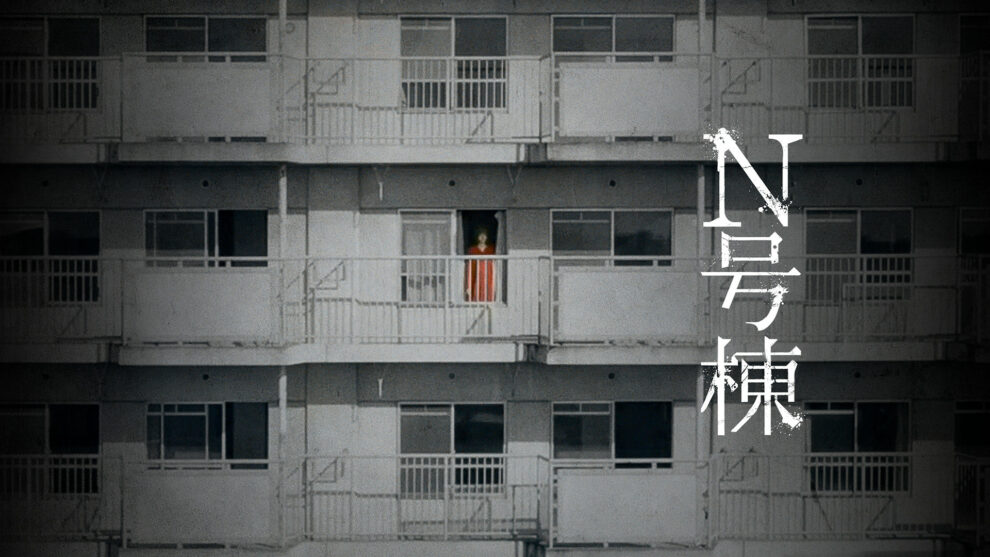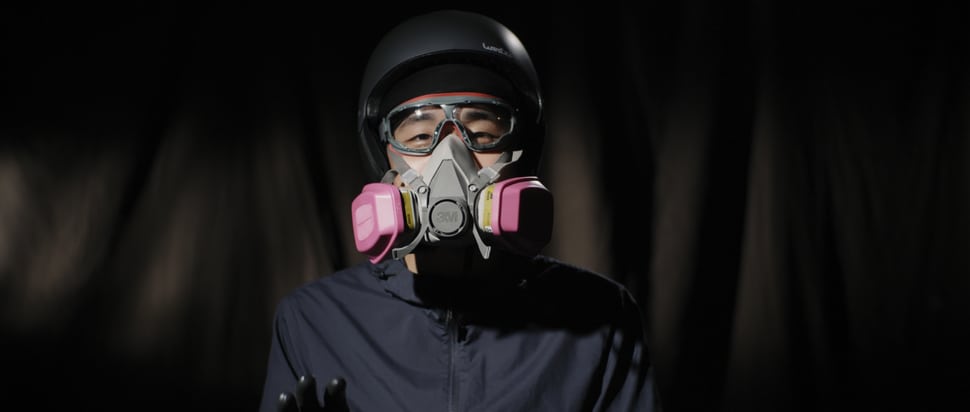J-horror has taken a different face recently in the country, with local filmmakers more interested in exploring the borders of the category and how much a realistic base (as in the case of actual events) can be implemented in such types of films. Yosuke Goto also implements this approach in “Bldg N.”, based on a true story that took place in an apartment complex in Gifu Prefecture in 2000.
“Bldg N.” is screening at Bucheon International Fantastic Film Festival

Although Maho does not know it, her boyfriend Keita is still seeing his ex, Maho, who is experiencing an intense thanatophobia, as they attend the same college. For one of his projects, a horror film, the three of them decide to visit an abandoned apartment complex on the outskirts of the city. However, as soon as they arrive there, they realize that it is not uninhabited at all. The inhabitants, however, function like a cult of sorts, while a woman who seems to be in charge, Kanako, informs them of the presence of ghosts, and reveals a state of cohabitation with them. The three students actually decide to stay the night, but their hidden dynamics eventually come to the fore, while they also experience paranormal phenomena and even violence, suicide and death, which, eventually, though, force them to take a good look at themselves.
Check also this article
Yosuke Goto shoots a movie that may have horror as its base, but actually moves into a number of other directions. The concept of the ostracized people who live on the outskirts of society and the way they sometimes prefer their isolation and abhor any kind of exotification is one of the central ones here, as eloquently represented by the inhabitants of the building.
Another central one is Shiori's mental state and the way it both impacts her life and finds a manifestation in what she experiences in the building. Her thanatophobia and the fact that she never wants to be alone seems to be the main factor that has her asking for her ex's companionship, even though he has another girlfriend. It is also what makes her appear courageous as her unwillingness to stay by herself is what leads her to the building with the couple, as much as its further exploration. That as the story progresses she finds herself trapped can also feel as a metaphor for what is happening in her mind, which is practically the same suffocating experience, although in mental terms. Essentially, as the story progresses, the movie looks like a psychotherapy for Shiori, although in intensely extreme terms.
And although the above comments are well-presented, the horror aspect suffers somewhat, particularly since the story unfolds in the same, occasionally nonsensical approach of b-movies of the category. Particularly the jump scares do not work that well, while the repeated sequence where the building is being shown from afar while everyone inside it gets crazy is impressive the first time it is shown in the film, but not so much after that.
Yasuyuki Suzuki's cinematography is impressive on occasion, particularly in the way it captures the suffocating setting the whole story takes place in, with the scenes where all the inhabitants and the three protagonists are together and the aforementioned ones of the building being the apogee of his work. The combination of desaturated and sepia tones in the coloring also works well, in an approach, though, that seems to be becoming cliched in the new J-horror films. The scenes of brutality and intense blood are also well depicted. Masaharu Hirakawa's editing implements a pace that is faster in the horror scenes and slower in the social drama ones, in an approach that works well here, while at 104 minutes, the movie does not particularly overextend its welcome.
Minori Hagiwara is the definite protagonist of the movie and gives a rather convincing performance, both in her insecurities and her effort to appear stronger than she is. From the rest of the actors, Mariko Tsutsui is again great as Kanako, emitting a very unusual sense of horror with her smile, words and overall demeanor, and Taro Suwa as the caretaker, who looks normal and kind until he doesn't.
“Bldg N.” has its moments and it will probably find appeal among fans of horror movies, but as a film in whole, it does not make that much sense, as the combination of b-movie aesthetics and the effort to induce the whole thing with context could have been handled better. It is not a bad movie, it just does not reach the level of some of the movies presented in the aforementioned list.















